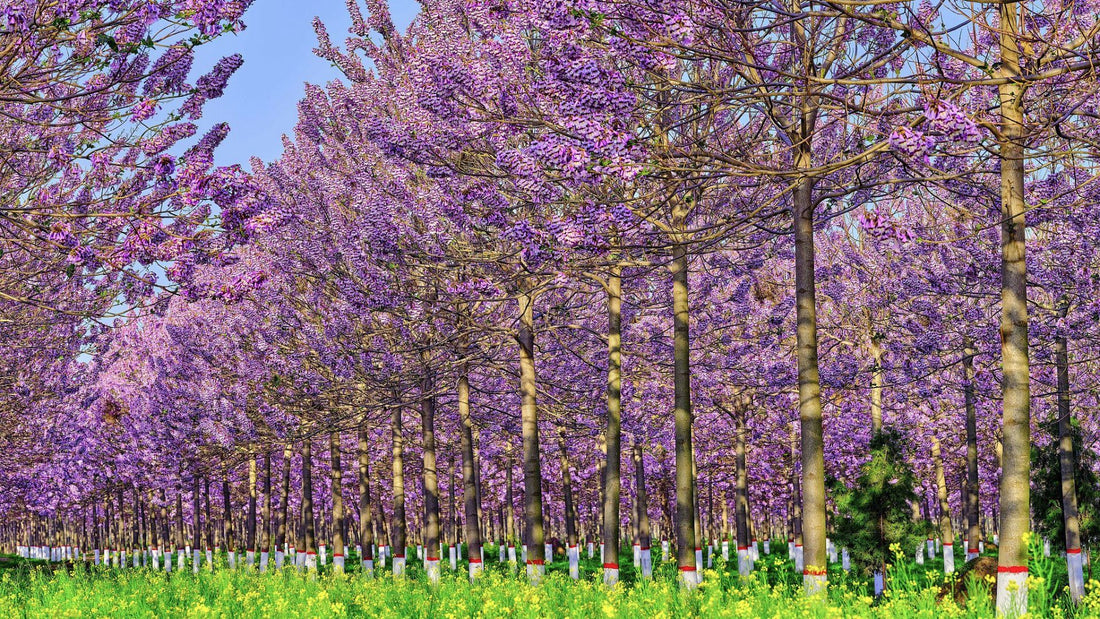
Paulownia and surfboards
Paulownia is a genus of flowering plants in the family Paulowniaceae which grow and develop biomass extremely quickly. They are native to China, but they have been introduced to many other parts of the world including Australia. The Paulownia Tomentosa is often planted as an ornamental tree due to its colourful flowers. However, the seeds of this variety are easily transported by wind making it an invasive species.
For our surfboards, we utilize a hybrid species of Paulownia composed of Paulownia Tomentosa and Paulownia Fortunei. This hybrid species is non-invasive as it does not spread through seed dispersal. It has been optimised to achieve rapid growth, high timber strength and quality, and low water and fertiliser requirements.
The hybrid variety of Paulownia that we utilise grows at an exceptional pace and effectively captures a significant amount of Carbon Dioxide (CO2). This captured CO2 is then locked within the timber, forming the foundation of our surfboards.
Paulownia is in the goldilocks zone of timber strength-weight for surfboards. With a density of around 250-300kg/m3 Paulownia is hard enough to prevent pressure dings and dents while being light enough to able to make hollow boards with weight and performance on par with traditional foam/fiberglass construction while providing superior durability. Balsa with a typical density of around 100-150kg/m3 is too soft for hollow boards without a thick fiberglass and resin coat, and readily absorbs water requiring internal sealing for durability - whilst being too heavy for performance solid/non-chambered boards.

Paulownia provides greater strength, hardness and ding resistance than a raw EPS or PU blank. This enables us to reduce the amount of fiberglass and resin that is needed to around 1/3 of the fiberglass and resin that is standard in the surfboard industry while creating a surfboard that can take a serious beating.

1 comment
Don’t lie get your facts straight